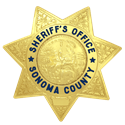Canine Unit
Canine Mission
The canine(s), after having been properly trained and certified, are used for the following purposes: master protection; searching for fleeing suspects; apprehension of fleeing suspect; crowd control; and public relations, which include demonstrations for local schools and community organizations.
Canine Training
Each patrol dog and handler K-9 team participates in extensive training with trainer Frank Romano. During their training period, the handler and dog are required to attend a 5 week training course at Golden Gate K9 in Santa Rosa, California. The teams begin with obedience, and over the 5 week course they advance to open area searches, building searches, suspect tracking, and evidence searching. The K9 teams are then certified by “POST” and approved for patrol work.
Upon successful completion of the Basic K9 Handler Course, the teams receive a minimum of (16) hours of rigorous training per month. The training is to ensure the efficiency of each dog and handler in all phases of their assignments.
Canine History
The Sonoma County Sheriff’s Office Canine Unit was started in February 1970. The department began using Doberman Pinschers trained by Art O’Keefe of the San Francisco Police Department. In 1974, the department hired Dennis Jamarck. During this transition the department retired the Doberman Pinschers and began using German Shepherds. In the late 1980’s, Rottweilers were also used for patrol.
In 2013, Frank Romano, owner of Golden Gate K9, became the full time trainer for the department. The department currently uses Belgium Malinois, and German Shepherds.
Canine Assignments
Main Office, Santa Rosa: The dogs live at home with the deputies and are subject to K9 call-outs after hours. There are currently (9) patrol K9 units. Patrol K9 units work day shift and night shift out of the Main Office in Santa Rosa. A patrol K9 is assigned to the Windsor Police Department and Sonoma Valley Sub-Station.
Sonoma Coast: There are (3) patrol K9 units assigned to resident deputies working along the rugged Sonoma Coast. These resident deputies cover sixty miles of remote coastline along the Sonoma Coast and are required to live on the coast. These deputies are subject to call-outs, 24 hours a day and at times rely on their K9 partner for back-up.
Narcotic Detection Canines
Prior to being put into service, the canines and their handlers used for narcotic detection are trained for (5) weeks by Golden Gate K9. The dogs are trained to locate methamphetamine, cocaine, and heroin. Upon their successful completion of the (200) hour Basic Narcotics Detection K9 Handler Course, canines receive a minimum of (16) hours of monthly training/certification. The narcotic teams are certified by the California Narcotic Canine Association.
Vehicle Assignments
Each K9 team is assigned his own patrol car which is modified to accommodate their K9 partner. The vehicle’s have cage units to contain the dog, and transport prisoners. The vehicle’s have electric door openers so that the deputy can open the door via a remote control. The vehicle’s are equipped with a climate control system which automatically activates to keep the air conditioning unit running while the handler is away from the vehicle.
Canine Equipment
The handlers are equipped with leashes, collars, harness’, muzzles, a bite sleeve, and other related equipment needed to care for the dogs. The department provides full bite suits, and additional bite sleeves for training. The department also provides additional safety equipment for volunteers who come out to assist the K9 unit.
Questions or Comments for the Canine Unit
Sheriff-K9@sonoma-county.org.
